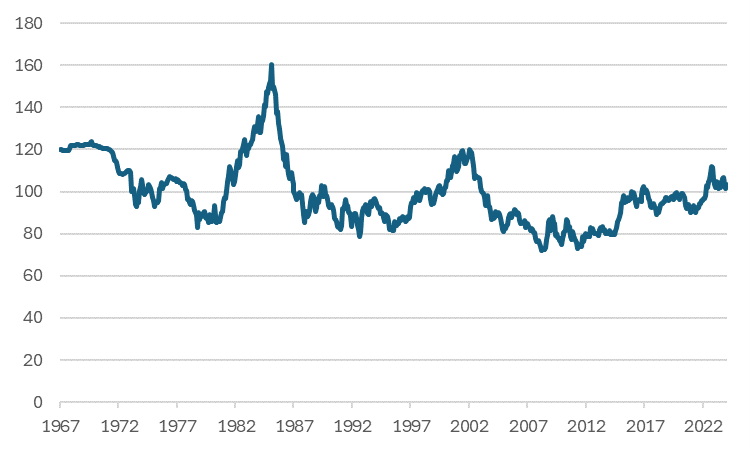| We don’t expect the US dollar’s privileged status on the global stage to be dislodged anytime soon and the recent trend has been toward the dollar, not away from it. For example, the dollar swap lines with other Central Banks that were announced during the March 2023 banking turmoil further strengthened the global dollar network effects, and while other currencies are held as reserves by central banks, the share of those other currencies is dwarfed by the dollar.
The euro is in second place and makes up about 10% of foreign exchange reserves. The Chinese renminbi (often touted as the next great currency) is only 2.5% of foreign exchange reserves. Yes, China has pushed to increasingly use the renminbi in bilateral trade, but strict capital controls on flows of renminbi out of China severely limit its potential as a global currency.
Economists have pointed to the overuse of dollar sanctions overseas and US financial instability as potential factors in the loss of dollar dominance. Loss of reserve status would have severe repercussions. For example, we would lose the ability to finance our ever-growing deficits and also lose substantial influence in global affairs – in other words, the US would be much poorer and much less influential.
China’s Belt and Road Initiative is a good counterexample to US dollar hegemony. As part of the Belt (the old Silk Road trading route between the Roman Empire and China that goes through Europe, the Middle East, Russia, and Central Asia) and Road (the maritime route that goes from China around India, up the coast of Africa, through the Red Sea and Suez Canal, and into the Mediterranean) initiative, China is supplying cheap financing, infrastructure development, energy security, and technological know-how to the region while pledging to recognize “absolute sovereignty” of those countries. This is a pledge from China not to meddle in local political affairs, comment on human rights abuses, etc. Continued global dollar dominance is the main constraint on the expansion of Chinese economic and military influence in the region. |
